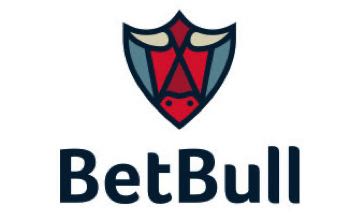 For betting companies, there are few markets on the planet as lucrative as the United Kingdom. Though countries like the United States of America have recently started to allow online betting and the likes to take place in most states, it is still a young market learning its place in the industry. The UK, on the other hand, has allowed online betting to take place since the get-go and remains one of the most free to operate in. With that it mind, it is intriguing that a number of different companies have decided to leave recently.
For betting companies, there are few markets on the planet as lucrative as the United Kingdom. Though countries like the United States of America have recently started to allow online betting and the likes to take place in most states, it is still a young market learning its place in the industry. The UK, on the other hand, has allowed online betting to take place since the get-go and remains one of the most free to operate in. With that it mind, it is intriguing that a number of different companies have decided to leave recently.
Whilst the UK is unquestionably a lucrative market in terms of the amount of betting that takes place and the number of different products that companies can offer, it is also one of the most regulated countries in which to operate. The United Kingdom Gambling Commission is not shy when it comes to handing out fines for sites that break its rules, which has led a number of different companies to decide that it is more trouble than its worth to operate in. For some, it has been a matter of weighing up the freedom against the necessary compliance.
Companies That Have Left the UK
To a British audience, it might seem as though a companies that no longer operates in the United Kingdom has shutdown altogether. In reality, however, most of them are still operating, but have just decided to no longer offer their services to customers that are located in the UK. Whilst some businesses have indeed stopped operating, a large number have instead chosen to focus their attention elsewhere rather than continue to fight against the UKGC and the numerous different regulatory hoops that they make companies jump through.
Here is a look at some of the gambling sites that no longer offer their services in the United Kingdom:
BetBull
 When BetBull launched in 2015, it did so as a mobile-first betting app. On the 20th of June 2022, the company stopped accepting new registrations in the UK, with bets and deposits following four days later. The company closed altogether on the 3rd of July, making the decision to close rather than going bust altogether. The company partnered with Wynn in 2018 to operate in the United States of America after the law changed there, with the move away from the United Kingdom largely taken so that they could focus on their US market.
When BetBull launched in 2015, it did so as a mobile-first betting app. On the 20th of June 2022, the company stopped accepting new registrations in the UK, with bets and deposits following four days later. The company closed altogether on the 3rd of July, making the decision to close rather than going bust altogether. The company partnered with Wynn in 2018 to operate in the United States of America after the law changed there, with the move away from the United Kingdom largely taken so that they could focus on their US market.
Novibet
 It would be untrue to describe Novibet as one of the biggest brands that has operated in the UK, but it would also be misleading to say that they were nobodies. It is possible that they came and went without you even noticing, but it was a reasonably popular site for those in the know. It decided to leave the market in the United Kingdom in February of 2022, with Novigroup Limited instead focussing on its thriving markets in the likes of Malta, Greece, Italy and Ireland. With more than 368,000 UK-based customers, the company was doing reasonably well before the decision to leave.
It would be untrue to describe Novibet as one of the biggest brands that has operated in the UK, but it would also be misleading to say that they were nobodies. It is possible that they came and went without you even noticing, but it was a reasonably popular site for those in the know. It decided to leave the market in the United Kingdom in February of 2022, with Novigroup Limited instead focussing on its thriving markets in the likes of Malta, Greece, Italy and Ireland. With more than 368,000 UK-based customers, the company was doing reasonably well before the decision to leave.
EnergyBet
 Despite having taken a bit of a chunk out of the dominance of certain big brands in the United Kingdom, EnergyBet and its sister (but largely unrelated) site, LVBET, both decided to shut down their UK operations in 2022. At the time that the closure was announced, both companies were solvent and performing well. It was ‘a business decision following the current market changes in the UK’ that led to them closing, which is suggestive of a company that wants to look to expand its market coverage in other areas that are less strictly regulated.
Despite having taken a bit of a chunk out of the dominance of certain big brands in the United Kingdom, EnergyBet and its sister (but largely unrelated) site, LVBET, both decided to shut down their UK operations in 2022. At the time that the closure was announced, both companies were solvent and performing well. It was ‘a business decision following the current market changes in the UK’ that led to them closing, which is suggestive of a company that wants to look to expand its market coverage in other areas that are less strictly regulated.
STS
 Given the fact that STS only decided to move into the UK market in 2019, you would be forgiven for thinking that the company would stick it out for a bit longer. Having launched in 2008, the site went on to be one of the biggest in Poland before stretching its legs into the United Kingdom. Within four years, however, the site left the UK on account of the fact that most of their revenue comes from Europe and the United Kingdom has too many rules and regulations in place to allow the company to grow in a meaningful way.
Given the fact that STS only decided to move into the UK market in 2019, you would be forgiven for thinking that the company would stick it out for a bit longer. Having launched in 2008, the site went on to be one of the biggest in Poland before stretching its legs into the United Kingdom. Within four years, however, the site left the UK on account of the fact that most of their revenue comes from Europe and the United Kingdom has too many rules and regulations in place to allow the company to grow in a meaningful way.
MansionBet
 At the start of 2022, MansionBet announced that it would be closing to the United Kingdom on the 31st of March that year. It was entirely solvent when it decided to so, with the company announcing that the ‘UK regulatory environment, non-proprietary platform constraints and market conditions’ were the main reasons for the shutdown. The choice to leave was one of the most surprising of the ‘smaller’ brands, given how well MansionBet had done here. They were a sponsor of Tottenham Hotspur, for example, as well as numerous major horse races.
At the start of 2022, MansionBet announced that it would be closing to the United Kingdom on the 31st of March that year. It was entirely solvent when it decided to so, with the company announcing that the ‘UK regulatory environment, non-proprietary platform constraints and market conditions’ were the main reasons for the shutdown. The choice to leave was one of the most surprising of the ‘smaller’ brands, given how well MansionBet had done here. They were a sponsor of Tottenham Hotspur, for example, as well as numerous major horse races.
Regulatory Challenges
Several of the companies that had chosen to close their services in the United Kingdom but continue to operate elsewhere mentioned the ‘regulatory challenges’ that were presented by operating in the UK. Some of these challenges weren’t even in place when the companies decided to shutdown the UK sites, but it was fear of what was to come that was driving their decision making. There has been widespread fear from many in the gambling industry about what the new gambling legislation is likely to look like.
The government commissioned a white paper to look at changes that should be brought in in order to modernise the 2005 Gambling Act. Many of the mooted changes include the likes of increased affordability checks, later re-branded as financial risk checks, limits to stakes placed online and restrictions on advertising. With that in mind, it is likely that a number of companies decided to jump out of the UK market before they felt it became too stringent for them to operate in successfully. The rules won’t just ask for more compliance, but more spending too.
The result of that is that businesses are looking at the betting market in the United Kingdom and figuring that it is going to cost them more to operate in, whilst seeing their revenues begin to reduce. As a result, many are deciding that their money is better spent elsewhere, where the regulatory requirements are far less stringent and therefore more likely to offer them a chance to make more. The fact that MansionBet, as an example, have decided to leave as part of an exodus of small to mid-sized companies is quite telling.
A Competitive Market
One of the big reasons why some companies fail to succeed in the United Kingdom is that the betting market is an extremely competitive one. There are certain sites that are huge and take a large portion of the business of the UK bettors, with the rest competing with each other over the scraps. The fact that there are so many small-to-medium sized sites fighting for said scraps means that it can be extremely difficult for them to earn a sufficient amount of money each. When the regulatory challenges increase, that makes that even tougher.
For many sites that have chosen to leave the United Kingdom, they already operate in other markets and feel that the money that they need to invest to succeed in the UK would be better spent increasing their market share elsewhere. If you look at STS, for example, they are already one of the biggest companies in Poland, so spending money on advertising and other forms of investment there will likely lead to a larger share of a smaller market than spending the same amount in the UK simply to remain compliant.
The United States of America

As far as the British market is concerned, one of the worst things that has happened in recent times is the relaxation of gambling laws in the United States of America. When you consider the fact that the UK as a whole is barely bigger than some states, it is not a surprise that the ability to operate in the US is something that is hugely appealing to some. Though the United States is hardly likely to be significantly less regulated than the UK, the audience that operators can appeal to is huge in comparison and therefore worth the investment.
There is also the fact that the US as a market is only likely to grow as more and more states realise the potential revenue that can be gained from gambling. Investment and growth there can be worth while relatively quickly, whilst the UK has a largely finite resource in terms of bettors. As regulation increases in the United Kingdom, the temptation of trying your luck in the US must be fairly over-whelming for most companies. Whilst the smaller ones are unlikely to aim to succeed there, the medium-sized ones will do.
Many Companies Remain
Of course, with all of the talk of companies leaving the United Kingdom, it is easy to forget that many more remain. It is also a market into which new operators arrive on an almost daily basis, in spite of all of the regulatory challenges that face them. Of those that remain behind, some have been hit with big fines by the Gambling Commission at one point or another in the not too distant past, yet continue to target UK customers because they know just how lucrative a market it can be if you manage to break into it well.
888
In March, for example, 888 UK Limited was hit with a £9.4 million fine. On top of that, the company was also given an official warning and had to undergo extensive independent auditing. Five years earlier, 888 had been forced to pay a penalty package worth £7.8 million, after failing vulnerable customers. In spite of this and the fact that 888 operates successfully in other countries, the company has shown no signs of planning to leave the United Kingdom any time soon. A sign, perhaps, that companies can succeed if they keep at it.
Coral & Ladbrokes
888 isn’t the only operator that has been forced to pay a big fine but doesn’t show any signs of leaving the market. Entain was hit with a £14 million fine due to failures at its online business LC International Limited, which is responsible for the websites of the likes of Coral and Ladbrokes. It also had to pay £3 million due to specific failures at the physical premises owned by Ladbrokes Betting & Gaming Limited, taking the total fine due to £17 million. On top of that, additional licence conditions were also imposed on certain members of the board.
LeoVegas & Betway
It isn’t just the biggest sites that get hit but keep operating either. In August of 2022, LeoVegas was given a penalty of £1.32 million due to failures in its anti-money laundering and social responsibility work. LeoVegas can probably be best described as a middling operating in the UK betting market, continuing to operate after the fine was issued. The same description can probably apply to Betway, with the company having to pay a fine of £400,000 after having been found to be marketing on children’s webpages.